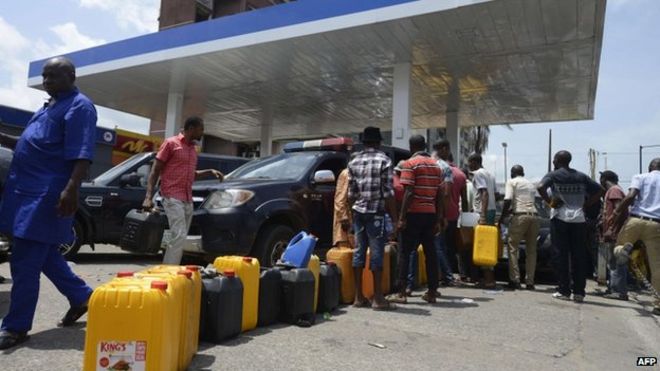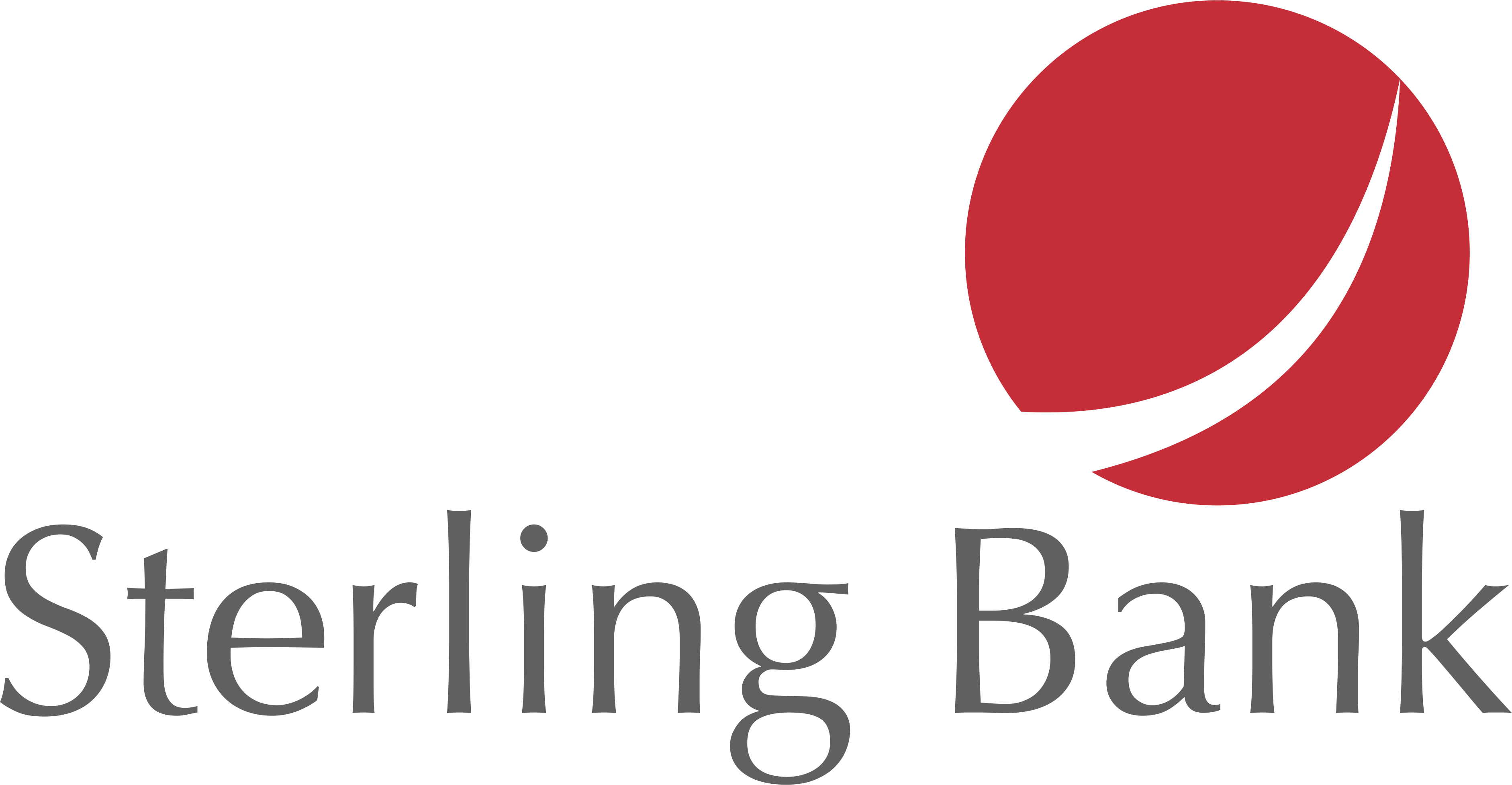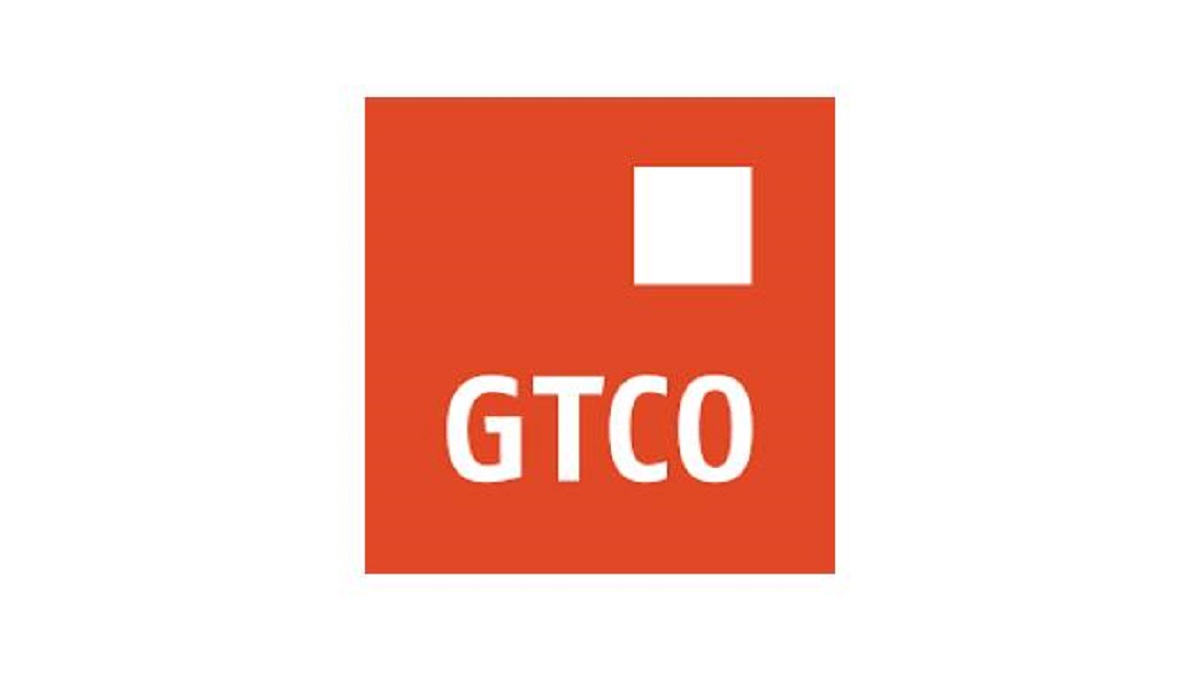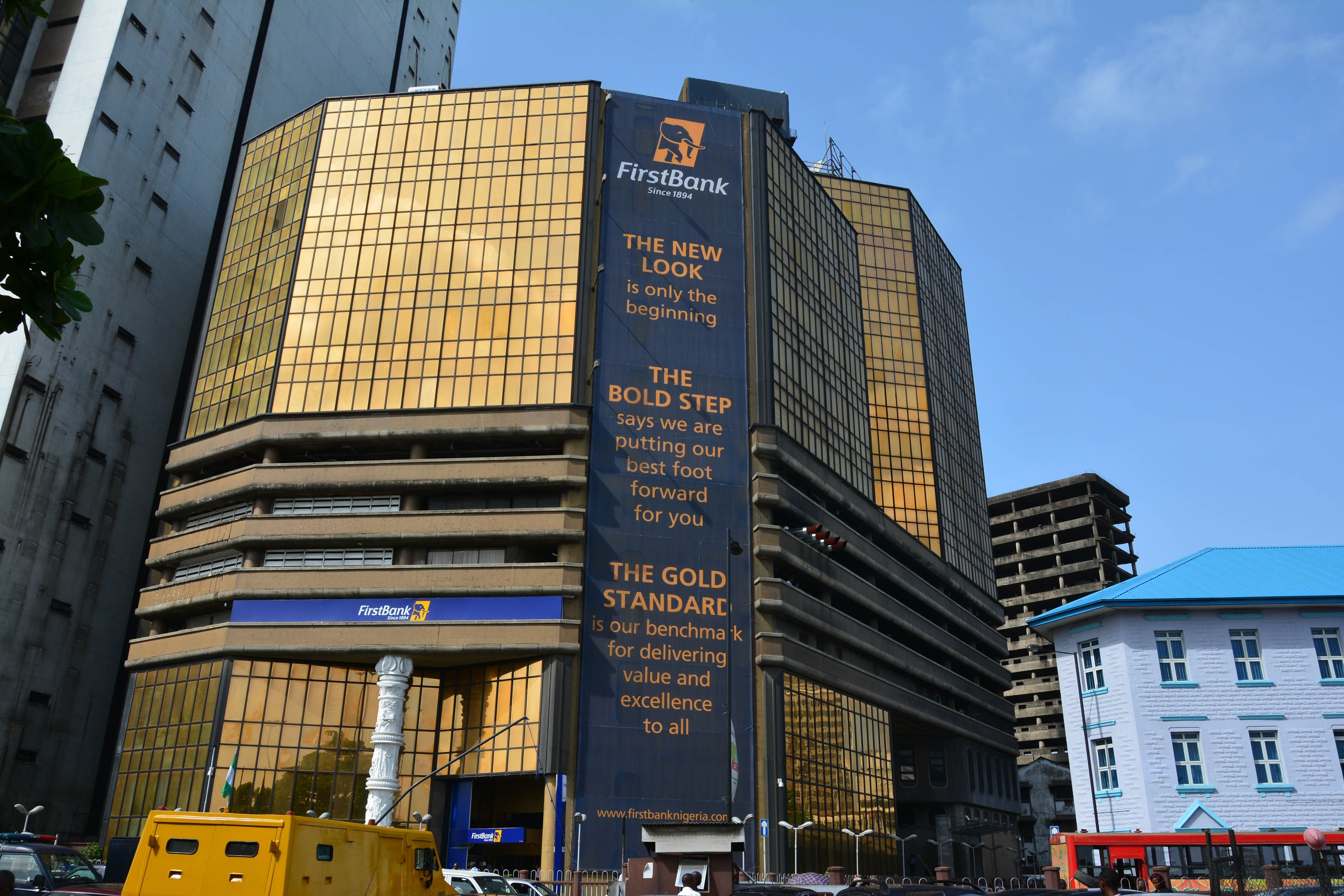Business
Petrol Pump Price Hits N300 Per Litre, Nigerians Groan

By Punch Reporters
The scarcity of Premium Motor Spirit, popularly called petrol, grew worse across the country on Thursday, as massive queues were witnessed in Abuja, Lagos, Port Harcourt, Calabar, Warri, Nasarawa, Minna, among other places.
Oil marketers stated that the scarcity became worse due to the fact that dealers could hardly access the product from the only two depots that were dispensing the commodity in Lagos State as of Thursday.
The few filling stations, particularly those of independent marketers, that dispensed the commodity on Thursday, sold it at between N250/litre and N300/litre, depending on area of purchase.
Oil marketers told our correspondent that over 1,000 tickets, belonging to marketers which had paid for products, remained unattended to, at the few depots that dispense the commodity in Lagos.
It was gathered that the tickets, which were for over 1,000 tankers, had continued to pile up due to the pressure on the two depots, namely MRS and Pinnacle.
It was also gathered that the cost of petrol could have been increased quietly by the Federal Government, as stations that used to sell the approved price of N179 – N180/litre had raised their prices to between N185 – N190/litre.
Scarcity hits Abuja
The scarcity in Abuja was worse on Thursday, as virtually all retail outlets belonging to independent marketers were shut, while only few stations belonging to the Nigerian National Petroleum Company Limited and major marketers dispensed PMS.
But the very few outlets that dispensed products were greeted with massive queues of motorists who spent hours waiting to buy petrol.
Commenting on the issue, the Secretary, Independent Petroleum Marketers Association of Nigeria, Abuja-Suleja, Mohammed Shuaibu, said the concerns in the downstream sector would continue to linger as long as the government remained the sole importer of petrol into Nigeria.
He said, “The Federal Government, through NNPC, is the only one importing this product and it is subsidising it. And they don’t have the facility to store the product.
“Some time ago we complained about this because when they store in private depots, the price is hiked and some of the depots continue to exploit the masses arbitrarily.
“However, as it is now, the government is bringing in products. But the issue now is that virtually all the depots that belong to major marketers in Apapa axis of Lagos are empty. So there is now pressure on MRS and Pinnacle depots where NNPC drop products.”
Shuaibu added, “So, there are over 1,000 tickets of marketers who have paid to have their trucks loaded, but we don’t know what is happening. Today they will tell you that they are upgrading the system, tomorrow you will hear that the system did not capture.”
He said tickets were piling and “you know that it takes much time to transport this product from the South to the North. Some trucks spend one month, especially when they have problems on the road, others spend two to three weeks.”
The IPMAN official called on the Federal Government to do something about this, adding that it must be done fast.
When asked why were other depots in Apapa and in other locations not selling products, Shuaibu stated that pipeline vandalism, depot upgrade and other issues were the reasons.
He said, “Last time we complained that some depots were exploiting us, and the depots argued that the cost of moving products from one end of their facility to another had Increased, as well as other issues. So we can’t tell whether that is another reason why NNPC stopped supplying some of these depots.
“Things were not worse like this before. As I’m talking to you now, some of our tickets have been there for close to a month. I did payment since but I can’t load. And the story is the same across their 21 depots. We can’t load.”
Meanwhile, Shuabu stated that unconfirmed information on the official pump price of PMS that filtered in on Thursday evening was that the government had quietly raised the cost of petrol.
“I cannot confirm it yet, but we are hearing that they have quietly increased the pump price of petrol, because major marketers in Lagos who used to sell at N179 – N180/litre, are now selling at N185 – N190/litre,” he stated.
Also speaking on the issue, the Public Relations Officer, IPMAN, Chief Ukadike Chinedu, said another reason for the scarcity was the changes being done by NNPC in terms of payment for products by marketers.
He said, “NNPC has moved independent marketers from PPMC Marketers Express to the NNPC Retail portal. That NNPC Retail portal is where marketers will be able to buy their products. However, they told us that the portal is in place now.
“Another concern is that they (NNPC) are also having an issue with the remittance, which, according to them, has been resolved. But the impact of these issues will definitely be felt and it will take some time to clear.
“Marketers are calling on NNPC to supply products to some of the depots where independent marketers can access them since most NNPC depots are not functional because of pipeline vandalism.”
Business
Sterling Bank Abolishes Account Maintenance Fees

Sterling Bank, on Wednesday, announced the removal of account maintenance fees on all personal accounts, describing the decision as a “gift” to Nigerians in celebration of the country’s 65th Independence Day.
The decision, which follows the abolition of transfer fees on local online transactions in April 2025, was outlined in a statement shared by the bank. The bank said the policy would allow customers to keep more of their earnings, framing it as a step toward financial freedom.
“Every fee we remove is one less barrier between our customers and true financial freedom. This was the rationale behind eliminating transfer fees in April, and it is the same principle we uphold as we eliminate account maintenance fees,” Sterling Bank’s Managing Director, Abubakar Suleiman, said.
The statement highlighted that in 2024 alone, tier-1 banks in Nigeria earned over ₦650 billion from account maintenance and e-banking charges. “This decision cuts at the heart of a revenue model that has long cost Nigerian customers dearly,” the bank noted.
Obinna Ukachukwu, Sterling’s Growth Executive for Consumer and Business Banking, said the initiative was intended to strengthen long-term relationships with customers. “This initiative is about building lasting relationships that fuel sustainable growth. We put transparency and customer value first, and in doing so, we are building a foundation that serves both our customers and Sterling’s future,” he said.
Sterling Bank also framed the removal of fees as part of a broader strategy to make banking more inclusive and customer-focused. The April 2025 transfer fee abolition had already eliminated charges on all local online transactions, easing costs for individuals and small businesses. At the time, Ukachukwu described the move as a values-driven decision aimed at ensuring fair access to money.
“Access to your own money shouldn’t come with a penalty. This is more than a financial decision—it’s about redefining banking to put customers first,” Ukachukwu said.
The latest move aligns with Sterling’s positioning as a bank committed to transparency, customer value, and digital innovation, and it signals a continued effort to reshape banking practices in Nigeria.
Business
GTCO Announces Pre-Tax Profit of N600.9bn for H1 2025

Guaranty Trust Holding Company Plc has reported a profit before tax of N600.9 billion for the half year ended June 30, 2025.
The figure is contained in the company’s audited consolidated and separate financial statements, which were released to the Nigerian Exchange Group and the London Stock Exchange.
The group stated that the performance was driven by growth in core earnings lines, including interest income and fee income, which rose year-on-year by 31.5% and 33.0%, respectively.
It explained that the growth helped to cushion the absence of N493.01 billion in fair value gains recorded in 2024, resulting in a 40 per cent decline.
GTCO stated that its total assets stood at N16.7 trillion, while shareholders’ funds totaled N3.0 trillion during the review period.
It added that its balance sheet remained strong, diversified, and de-risked across operating jurisdictions, as well as its payments, pension, and funds management businesses.
The group disclosed that its Capital Adequacy Ratio closed at 36.2 per cent, while asset quality improved with IFRS 9 Stage 3 loans declining to 3.2 per cent.
At the group level, Stage 3 loans stood at 4.5 per cent, compared with 5.2 per cent in December 2024.
Similarly, the cost of risk improved to 1.7 per cent from 4.9 per cent recorded in December 2024.
The company stated that its net loan book increased by 20.5 per cent, from N2.79 trillion in December 2024 to N3.36 trillion in June 2025.
Deposit liabilities also increased by 16.6 per cent from N10.40 trillion to N12.13 trillion during the same period.
The board of GTCO approved an interim dividend of N1.00 per share for the half year ended June 30, 2025.
Commenting on the results, Segun Agbaje, Group Chief Executive Officer, said the half-year performance reflected business strength and progress towards building a diversified financial services ecosystem.
He said beyond last year’s extraordinary one-off gains, the group was now driving sustainable growth with recurring earnings that demonstrated the resilience and scalability of its model.
Mr Agbaje noted that continued investment in technology, particularly in core banking upgrades, was delivering stronger uptime, efficiency, and greater capacity to scale with a growing customer base.
He added that across banking, funds management, pension, and payments, GTCO was leveraging a de-risked balance sheet to reinforce its market position while maintaining strategic flexibility. According to him, this foundation positions the group to seize emerging opportunities and deliver lasting value for all stakeholders.
Mr Agbaje stressed that GTCO had continued to post some of the best metrics in Nigeria’s financial services industry in terms of key financial ratios. He said the group recorded Pre-Tax Return on Equity of 60.4 per cent, Pre-Tax Return on Assets of 10.6 per cent, Capital Adequacy Ratio of 36.2 per cent, and Cost-to-Income ratio of 30.1 per cent.
NAN
Business
FirstBank Partners Organisers to Host E1 Lagos GP

In line with its commitments of promoting sports and developmental initiatives at all levels, First Bank of Nigeria Limited is partnering the organizers of the first of its kind E1 Lagos GP an all-electric powerboat racing championship, set to hold between the 3rd and 5th of October 2025.
Disclosing this at the E1 Lagos GP Stakeholder Immersion session in Lagos recently, Olayinka Ijabiyi, the Acting Group Head, Marketing and Corporate Communication of FirstBank, reaffirmed the Bank’s commitment to supporting initiatives that engender human development across the country while cementing legacies.
“Our involvement in the E1 Lagos GP is about driving legacy and enabling the passions and aspirations that unite Nigerians. We are a bank that has been in business for over 131 years and we recognize that sports drives us as a country, which is why through our First@Sports initiative, we continue to invest in platforms that inspire and elevate our people. We have been supporting legacy sport tournaments like the Georgian Polo Cup which we have hosted for 105 years, and the Lagos Amateur Open Golf Championship for 64 years now,” Ijabiyi said.
With the event slated for the start of the fourth quarter, FirstBank is aligning its partnership with the annual DecemberIssaVybe initiative, a campaign that celebrates the vibrant spirit of Nigerians during the festive season by curating unforgettable experiences that blend culture, entertainment and lifestyle. “FirstBank is deeply woven into the fabric of society and the lives of our customers. As presenting partner, we are creating meaningful touchpoints with customers and prospects, offering them a world-class experience of relaxation and celebration that captures the true essence of Lagos during the festive season,” he added.
Lagos State Commissioner for Information and Strategy, Gbenga Omotoso, who was also at the event, described the initiative as an event that will grow not just the sports but also showcase Lagos’s vibrant culture, dynamic people, and global relevance, while commending FirstBank for their support.
The teams owned by notable stars like Tom Brady, LeBron James, Didier Drogba, Will Smith, Marc Anthony, Steve Aoki, Rafael Nadal will compete in the Lagos leg before the 2025 season of the competition terminates in Miami in the United States.






